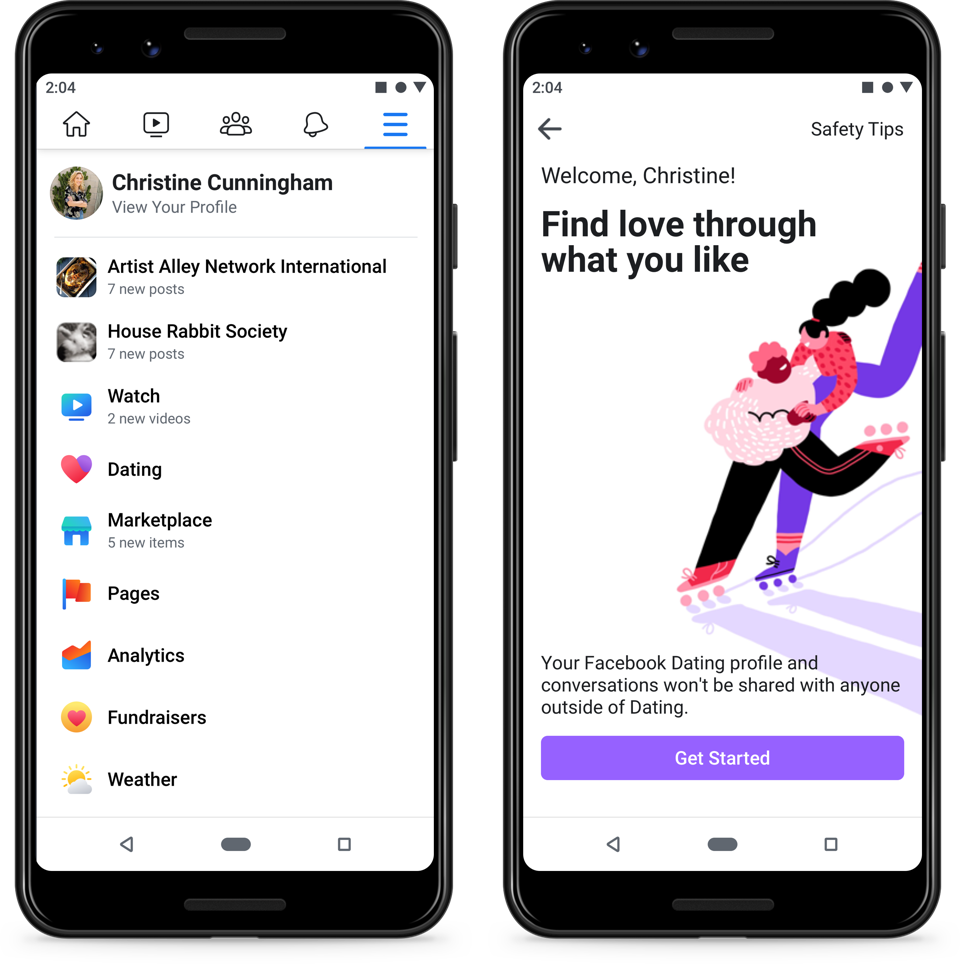
February is National Teen Dating Violence Awareness Month. It's a month to bring awareness about the dangers of this form violence. The Resource Center for Domestic Violence defines "teen dating violence" as "a pattern for abuse and threats against a teen, young adult or couple in a romantic relationship." This type or threat of abuse or threat may be physical or digital. It can be perpetrated in a number of ways, including by individuals, groups, and identities.
Signs of teen dating violence
Teen dating violence can be a very dangerous issue, especially for a teenager. This could be physical or emotional abuse. It is important to be aware of the warning signs so that your teen doesn't get hurt. It is important to monitor your teen's online dating activities.
If your teen notices a change in their mood, activity, and behavior, it could be an indication that he/she is experiencing abuse. Look for signs of depression, substance abuse, and antisocial behaviors. These behaviors could indicate a future relationship that is unhealthy. You should take immediate action if you observe any of these symptoms.
One third of teens have experienced some type of dating violence. It affects teens of all ages and it is more prevalent between teenage girls than boys. Young women are most likely to be the victims of teen-dating violence. Peer pressure is the main reason young women are most vulnerable to abuse. Many young women are unable to find help, and can be intimidated into committing violence.

Teens are also prone to digital abuse. This could involve requesting to see texts, exploitation or tracking location information, as well a demand for photos and text messages. Furthermore, domestic violence will affect more than 25% of women before they turn 18 and 44% of men. Furthermore, the consequences of teen domestic violence can be very damaging to a teenager's emotional and physical health. This can lead them to become more dependent on drugs and alcohol.
Risk factors for teen dating violence
Teen dating violence is a complex mixture of factors that influence the likelihood and severity of violence. Delinquency is one of the biggest risk factors, leading to higher violence rates. A larger age gap is another risk factor. These factors increase your risk of sexual violence and other risky behaviors.
Peer and family influence can have an impact on the risk factors of teen dating violence. Studies show that teens who have had violence in one relationship are more likely than others to have it in the future. However, very few teens seek help from formal resources. Peer and neighbourhood influences are also important. Programs must consider the influence of family and peers to prevent teen dating violence.
According to CDC data, one third of teens have experienced physical or psychological violence. The risk of dating violence is even higher for students who have poor grades. Teens who live in Northeastern and African-American areas are more at risk of being involved in dating violence. It is crucial to address these issues early.
The CDC has created resources to assist communities in addressing this problem. Among these resources is a toolkit containing multiple prevention strategies. These resources include articles, research, resources, as well as articles. They can all be used together or individually to reduce the incidences of teen sexual violence.
Raising awareness about teen violence in dating relationships

Many organizations and programs offer workshops and resources to help teens avoid violence in the dating world. These programs can help both teens as well as their parents. Teens who have had to deal with dating violence in the past can help others by being role models. These programs are designed to help teens avoid the dangers of dating violence by giving them information on healthy and unhealthy relationships.
A successful education program for teens must be engaging and informative. Interactive multimedia presentations can make facts more relatable and memorable. These multimedia presentations can help young people learn new skills to prevent teen dating violence, and enable them to have healthier relationships.
Teen dating violence affects many people, including children and adults. An estimated 10% of teenagers will experience some form of teen violence during their lifetime. This is especially true in girls. Research shows that girls are more susceptible to violence than boys and are more likely suffer from long-term behavioral or health consequences.
Teen Dating Violence Awareness Month (February) offers a wide range of activities that encourage healthy relationships and improve relationship skills. One way to raise awareness is to wear orange. To support the cause, wear brightly colored shirts and face-paint. Wear orange shoes, and take part in Wear Orange Day.
FAQ
My boyfriend wants sex with I, but it's not something I want. What should I do?
Sex is an intimate experience. It takes trust between partners. It is very unlikely that the other person will enjoy it if they feel uncomfortable or unsafe.
If you are feeling anxious or scared, it's understandable to want to avoid sex.
However, it's not a good idea to try to force yourself or risk hurting the feelings of your boyfriend. Instead, talk to him about why you're hesitant.
Ask him if it's something he believes you're ready for. Ask him what would make he feel most comfortable.
Listen to his answers. Don't judge him solely on your emotions.
If he says that he doesn't want to pressure you, then you can relax. However, if he claims that he would like to have sex, you need to work out how to overcome your fears.
You could simply practice safer sex. Or it might involve talking to your doctor about birth control methods.
No matter what your choice, you deserve to be happy. So if you're worried about hurting your boyfriend's feelings, then you owe it to both of you to find a solution.
How do I end a relationship?
Breakups can be hard to handle, especially if you wanted to reconcile with your ex.
However, you can learn how to cope with breakups. Our advice will help you move forward faster after a split.
First, keep in mind that most relationships aren't lasting. This means that your ex will likely see you again.
Second, look back on the wonderful times shared. Remembering those moments can help you to feel positive about the future.
Third, you need to examine your behavior during the breakup. Did you treat your ex badly during the breakup?
If you did, please apologize. So, they will see that you've made a change.
Finally, avoid engaging in argumentative or violent behavior. Instead, you should be able to have calm conversations.
Don't forget: It's never too late if you want to make friends with an ex. All that's required is a little effort.
Why does love disappear?
Love fades because we get used to each other. We become so familiar with one another that we don't even notice the differences.
We lose sight of the reason we fell in love first.
We then wonder why we don't feel happy anymore.
It's easy to fall in love and be swept away. Everything else seems trivial. All you can think about is your partner.
Then you look at all the things making you unhappy and start to get tired.
Then you begin thinking: "I'm not sure I really loved him/her after all."
You lose sight of what made you fall in love with your partner. So you start comparing yourself to your ex-partner.
And then you realize that they were more than you.
This realization causes you to question whether or not you should continue with your relationship.
Before you make the decision to end your relationship, think about these questions: Do both of you still love being with your partner? Are you content with your life now?
If you can answer both questions, then you should not break up.
Because even though you may be disappointed, you still like being with your partner.
You deserve happiness, you know.
Do not let love go. Keep loving until your partner loves you.
How long does the breakup take?
Sometimes people wonder how long it takes to break up and whether it's worth staying together. The truth is, no matter how much you try, breaking up won't always work.
You might need to take longer if you try to end things by talking to someone who isn’t interested in listening.
You may not be successful even after trying everything. This is because not all couples are meant to be together.
If you're thinking about ending things with someone, then you should first talk to them. You should tell them that you have made a decision, and then ask them if their opinion is correct.
If they affirm your plan, then you can proceed. However, if they do not agree with your decision, you should reconsider.
How to handle a fidgety partner
There are many things you can do to help your clingy lover. You could try talking to them about what they want from you, but if they don't seem interested in hearing anything else, then you may need to take action.
Consider getting away with your spouse at least once per week in order to have some time for yourself and to think about what you are looking for.
Consider leaving if you feel that someone is controlling you.
Remember that you have different needs, even though you may love one another. You might want one person to be near all the times while the other wants to go out only occasionally.
You need to question why you are spending so much time with your partner. Are you enjoying their company or are you afraid of losing them?
Once you know your answer to this question you will be able to decide if you want leave or stay.
Can I trust my girlfriend/boyfriend?
It is normal for you to worry about whether your significant other can be trusted. You don't want them to hurt you.
You should always talk to your partner if there are any questions. Ask them if they are trustworthy.
If they reply positively, you should continue to see them. However, negative feedback from them should be ignored.
Statistics
- But Gottman's research shows that three years into a relationship if you're not arguing at all, you're much more likely to find yourself arguing in divorce court. (time.com)
- After analyzing the data and controlling for the influence of other personality traits and demographic factors, she found that gritty men were 17 percent more likely to stay married. (time.com)
- Meanwhile, a 2010 study of twenty-three thousand married couples found that the similarity of spouses accounted for less than 0.5 percent of spousal satisfaction. (time.com)
- If you expect to get what you want 100% of the time in a relationship, you are setting yourself up for disappointment. (helpguide.org)
External Links
How To
How to start a relationship the right way
It doesn't take a lot to create memorable experiences for people. Only two things are needed to create memorable experiences for people - passion, and persistence.
People who are passionate about making a difference in the lives of others. Persistent and persistent people will keep at it until the end.
All you have to do to start a relationship is:
-
Find people who share your passions. These could be family members, friends, coworkers, neighbors or classmates.
-
Get to know them. Ask lots and lots of questions. Find out about their likes, dislikes, and interests. What drives them to do what they do? What is their secret to getting where they are today
-
Your passions and interests can be shared with them. Show them what you enjoy doing. Let them know what excites your heart.
-
Give them something in return. When possible, help them. Be generous. Pay attention to the details. Listen to them.
-
Keep working together. You'll one day look back and see that you have built a wonderful friendship.
-
Stay positive! Negative people are not something anyone wants to be around.
-
Enjoy life! You don't have time to stress about things you can't control.
-
Have fun! It's about more than money and work. There's more to life than that.
-
You must put effort into your relationships. Treat others with the same respect you would expect.
-
Stay humble. Never forget that everyone has strengths and weaknesses. You're no different.
-
You should take risks. Going beyond your comfort zone is the best way to discover how far you can go.
-
Love deeply. Your heart expands when you open it to another person.